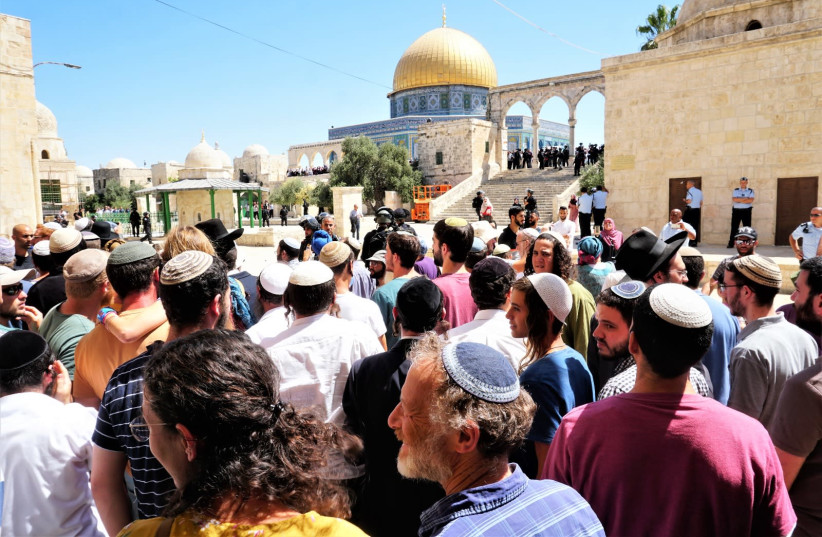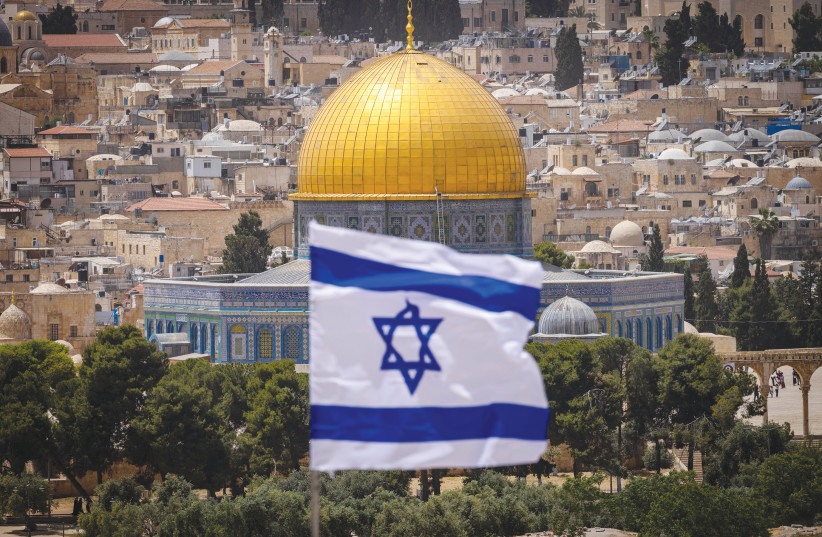The court overturned a ruling by a lower court earlier this week which caused a great deal of controversy.

A district court upheld a ban on Jewish prayer on Temple Mount late Wednesday night, overturning a ruling by a lower court issued earlier this week that appeared to have allowed such activity.
“There is no need to overstate the sensitivity of the Temple Mount which is one of the most explosive places in the Middle East if not the whole world,” wrote Judge Einat Avman-Moller.
“It has to be weighed against other interests such as the preservation of public order, public peace and security.”
Judge Einat Avman-Moller on Jewish prayer on Temple Mount
Israel since 1967 has maintained a status quo at the Temple Mount — to Muslims as al-Haram, al-Sharif — which allows for only Muslim worship for visitors there.
There has been an increasing push in recent years by right-wing activists and politicians to allow for Jewish prayer at the site, the holiest in Judaism and the third holiest in Islam. It’s a move that has sparked protest in the international community, especially among Palestinians and the Arab world.

Is Temple Mount under Israeli sovereignty?
A Jerusalem Magistrate Court ruling by Judge Zion Sahrai, which appeared to uphold the right of Jews to pray silently at the site, sparked outrage and caused Prime Minister Naftali Bennett to appeal.
Avman-Moller accepted the appeal and upheld the right of the police to have pressed criminal charges against three minors who had gone to the Temple Mount, thrown themselves on the ground, and uttered the prayer “Shema Yisrael,” which in English is “Hear O’Israel.”
She also upheld the right of the police to have conditioned their release on a 15-day ban from the site.
Sahrai had tossed the police charges, explaining that based on the facts of the case no criminal activity had occurred. Uttering “Shema Yisrael” on the Temple Mount, he said, did not constitute criminal activity. He clarified that this ruling was limited solely to facts of this specific case and was not meant to be interpreted at a policy level. He based his ruling in part on a statement by police chief Kobi Shabtai which said that all residents of Israel and the Palestinian territories could pray there. The minors, Sahrai explained, would have understood based on that statement that their actions were legitimate.
Avman-Moller disputed the idea that a statement by the police chief could have more weight than the clearly known rules of the site which prohibit such activity.
The restrictions were explained to the minors prior to their entry to the site, but they still threw themselves on the ground, prayed and yelled at the police, she wrote.
Attorney Nati Rom, who represented the minors on behalf of the right-wing organization Honenu, said the ruling brought into question the independence of the judiciary.
In the aftermath of Sahrai’s ruling, there was “an insane campaign of pressure and threats” that came from politicians, the media and terror organizations that “violated the independence of the judiciary.”
He referenced the famous line “the Temple Mount is in our hands” uttered by Lt.-Gen. Mordechai “Motta” Gur after leading the IDF forces that captured the Old City from the Jordanians during the Six Day War 1967.
Fifty-five years “after we liberated the Temple Mount,” Rom said, “it is not clear that it is still in our hands.”
Content retrieved from: https://www.jpost.com/middle-east/article-707714.